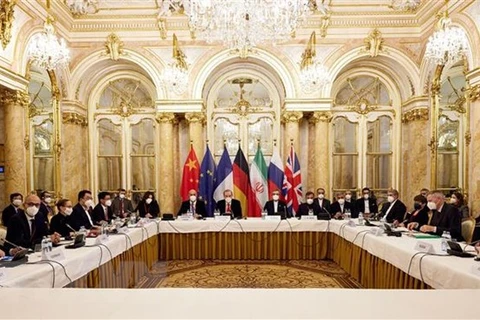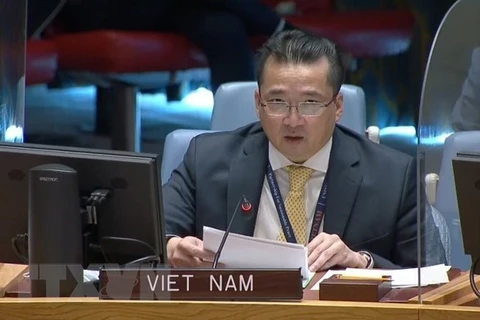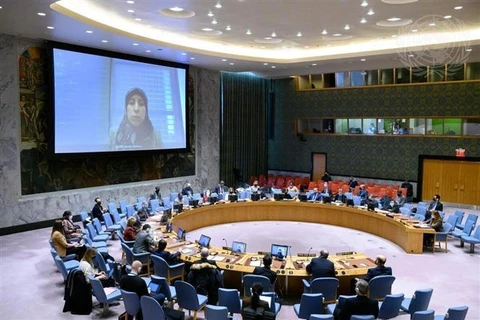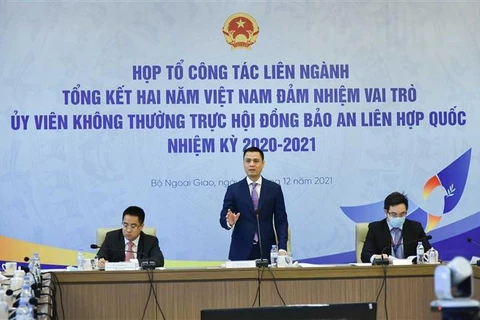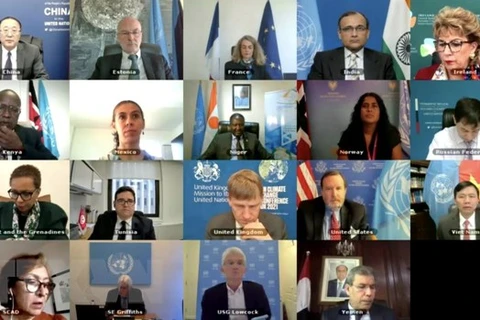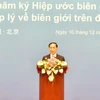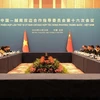Hanoi (VNA) - Vietnam has very deftly managed its position as a non-permanent member of the United Nations Security Council (UNSC) and has also supported countries like India in addressing issues such as maritime security at the global level.
The website moderndiplomacy.eu ran an article highlighting Vietnam’s contributions as a non-permanent member of the UNSC.
Vietnam joined the UN Security Council as a non-permanent member for the period 2020–2021. According to the article, during this period Vietnam raised issues relating to regional development, challenges in regard to the pandemic, building consensus on sustainable development goals, and addressing issues related to maritime and regional security.
In one of the statements made by the permanent representative of Vietnam to the United Nations, he clearly stated that Vietnam has been able to secure cooperation from the other members of the UNSC on issues related to objectivity, unity and transparency, and made a good case with regard to the legitimate interest of relevant parties.
Vietnam has aspired to bring to the United Nations a people-centric approach and stressed finding reasonable and sustainable solutions to settle maritime disputes through dialogue, highlighting the humanitarian challenges of the most vulnerable groups in the international society.
Vietnam strongly supports the UN Charter in the maintenance of international peace and security. It is also very vocal with regard to the protection of infrastructure, which is critical to people’s livelihoods.
The article said that one of the messages sent by President of Vietnam Nguyen Xuan Phuc, following the conclusion of Vietnam’s term as a non-permanent member of the UNSC, stated that completing the term, Vietnam has fulfilling the trust that was bestowed upon it by the international community when it got 192 out of and 193 votes for securing a non-permanent seat in the UNSC.
He stated that Vietnam has always stressed maintaining international peace and security and also urged nations to build consensus with regard to the pandemic and after-effects caused by COVID-19.
Vietnam, during the meeting on maritime security (held in August under the UNSC chairmanship of India), also suggested three important measures which included the involvement of international organisations in regional conflict zones, undertaking consultative measures through dialogue mechanisms and also stressing a people-centric approach to protect communities living in the coastal zones.
President Phuc also stated that the UN Charter and international law should be protected at all times. During a two-year stint with the UNSC, Vietnam projected its foreign policy in terms of self-reliance, promoting peace and friendship among nations, strengthening multilateral structures, and expanding its relations with other countries in the world.
In his message, he also stated that Vietnam has now become a more active and responsible stakeholder in international dialogue and would be taking responsibility to strengthen institutions such as the UN.
Vietnam is also aspiring to become a strong and prosperous middle power country by the year 2045 when Vietnam will celebrate 100 years of its independence. The adroitness of Vietnam’s diplomatic community and the party cadres has helped in the elevation of Vietnam’s international stature and enhanced ties with a number of countries represented at the UN. Vietnam steadfastly advocated for a world free from war and conflict and developing a common objective of international peace along with removing poverty and inequalities.
 Ambassador Dang Dinh Quy, Permanent Representative of Vietnam to the UN, addresses a UNSC session (Photo: VNA)
Ambassador Dang Dinh Quy, Permanent Representative of Vietnam to the UN, addresses a UNSC session (Photo: VNA) During its stint as the chair of the UNSC in April 2021, Vietnam demonstrated a strong affinity to the international community and highlighted issues which are of common concern for mankind. Vietnam also highlighted the need to strengthen dialogue between the UN and regional organisations and addressed the important issue of unexploded landmines and the after-effects of explosive remnants of the wars.
Vietnam made a strong case for respect and recognition for international law and implementation of the charter enshrined under UNCLOS 1982. Vietnam also raised the issue of women in the peace and conflict aspect, and the collateral damage of the climate change in conflict zones.
During the chairmanship of Vietnam, the pandemic effect became profound and, in that context, Vietnam showed diplomatic skills in promoting international peace and security. During its stint as the chair of the ASEAN in 2020, Vietnam had already explored the possibilities with regard to holding online and offline activities. Therefore, its experience came in handy at the UNSC to explore the potential of online and offline activities together.
Vietnam raised very pertinent questions with regard to the protection of civilians and critical civilian infrastructure in crisis zones. One of the important achievements which were enshrined in Vietnam’s tenure was the adoption of the International Day of Epidemic Preparedness. This was fully supported by all UN member states and the resolution was adopted worldwide. This International Day of Epidemic Preparedness was meant to prepare all organisations, including the private and public sectors, to address any gaps in preparedness and coordination as well as create awareness among people.
 The ambassadors of Estonia, Niger, Saint Vincents & the Grenadines, Tunisia and Vietnam at the lowering ceremony of the national flags of the five countries which are non-permanent UNSC members (Photo: VNA)
The ambassadors of Estonia, Niger, Saint Vincents & the Grenadines, Tunisia and Vietnam at the lowering ceremony of the national flags of the five countries which are non-permanent UNSC members (Photo: VNA) The list of priorities issued by Vietnam for the 2020-2021 tenure was primarily focused on peaceful settlement of disputes, strengthening the implementation of Chapter VI of the UN Charter, addressing the after-effects of armed conflict, promoting cooperation under the United Nations Peacekeeping Forces, and highlighting tangible solutions in mitigating the effects of climate change which are related to international peace and security.
All in all, one can say that Vietnam has very deftly managed its position as a non-permanent member of the UNSC, and has also supported countries like India in addressing issues such as maritime security at the global level. This has generated a lot of interest and international support which has been instrumental in adopting common protocols and future agendas for protecting the global commons, the article concluded./.

